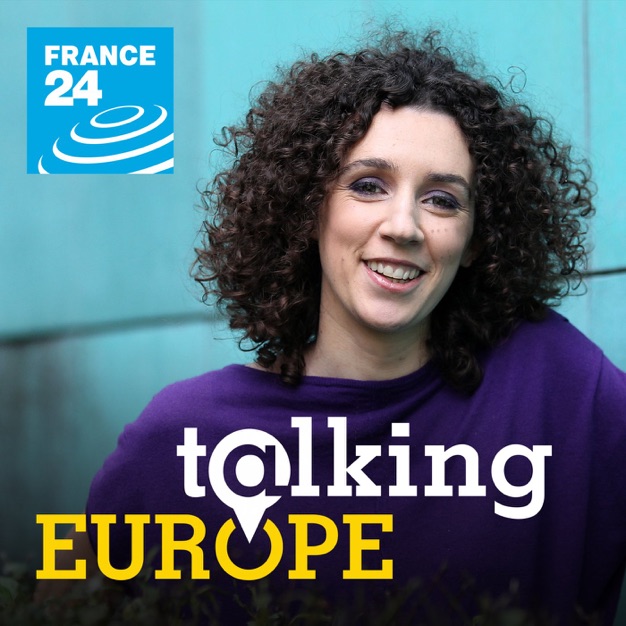
Talking Europe
Politicians, activists and researchers debate the issues facing the EU and a 'guest of the week' offers their insight in a long-format interview that gets to the heart of the matter. Saturday at 12.10 pm.
- 12 minutes 22 seconds'You need peace' to send EU troops to Ukraine: Belgian FM Quintin
Preparing to support Ukraine 'in all scenarios' – that’s how the head of the EU Council summarized the key takeaway from the final European summit of the year, ahead of Donald Trump’s potential return to the White House. We delve into the EU’s preparedness with Belgian Foreign Minister Bernard Quintin, who addresses the complex issue of possible European troop deployments in Ukraine, a topic discussed at the summit. Quintin also shares his hopes for a more democratic Syria after Bashar al-Assad’s ouster and outlines how the EU should support the country’s transition.
20 December 2024, 5:16 pm - 12 minutes 41 secondsErasmus programme, consumer protection, online safety: What the EU gets right
Things may look bleak for the European Union in the depths of winter, with challenges across the board: the threat of a trade war with the US, weakened political figures in Germany and France, European farmers menacing protests about the Mercosur deal, an uncertain outcome for the conflict in Ukraine, plus budgets being tightened for households and governments across the bloc. But despite or perhaps because of those threats, Europeans' sentiment is on the up: 51 percent of Europeans tend to trust the EU, the highest level since 2007; while 44 percent have a positive image of the bloc, a figure that's stayed more or less constant since 2010. Those figures are according to a recent Eurobarometer poll.
20 December 2024, 4:48 pm - 12 minutes 21 seconds‘The future of Syria must include everyone’, Spanish FM Albares says
Talking Europe meets one of Spain’s most seasoned diplomats, and a close confidant of the Spanish prime minister. José Manuel Albares is Spain’s foreign minister, and a former ambassador to France. We discuss the fall of the Assad regime in Syria, war in the Middle East, Ukraine, the Mercosur free trade agreement – which Spain strongly champions – and migration.
13 December 2024, 5:07 pm - 12 minutes 35 secondsRightward shift in Europe puts pressure on Green Deal: Will key EU policy survive?
Today, the EU’s Green Deal faces pressure from an atmosphere of economic crisis: car factories in Germany are set to close, farmers protesting about excessive environmental protection measures, soaring energy bills for households. But as the recent floods in Spain have shown, the issue of the climate crisis remains unavoidable for Europe’s leaders. Ursula von der Leyen herself promised in 2019 that the EU would be carbon neutral by 2050. In 2024, the Commission president says the next step of the Green Deal is the Clean Industrial Deal or how the EU can better support its industry and European competitiveness, all while striving for those environmental goals. The Political landscape of 2024 is very different to that of 2019 with populist parties seizing seats in the European parliament, often at the expense of Green MEPs.
13 December 2024, 4:44 pm - 12 minutes 29 secondsWe need a peaceful change of government: Georgia's former vice-PM Baramidze
Georgia is sinking deeper into crisis, as a pro-European protest movement is met with a severe police crackdown that has been condemned by EU officials. Our guest has been out in the streets every night, demonstrating against the ruling party’s decision to pause Georgia’s EU membership process, and in protest at the recent parliamentary election which the pro-European camp is convinced was rigged – a view backed up by the EU parliament and by the joint observation mission of several western organisations. Giorgi Baramidze is a former state minister for Georgia’s Euro-Atlantic Integration, and a former deputy prime minister of Georgia.
6 December 2024, 4:37 pm - 12 minutes 22 secondsUkraine war escalates as third anniversary approaches: What diplomatic and military role for EU?
The war in Ukraine has entered what some officials say could be its most dangerous phase, with Kyiv now using Western-supplied missiles to strike deeper inside Russia, and Russia reported to be using North Korean troops in Ukraine. There is even talk in some Western capitals of sending troops to Ukraine – something that has been floated in the past by French president Emmanuel Macron. Meanwhile there is nervousness in Europe about what the incoming US president’s peace plan for Ukraine might entail – Donald Trump keeping his cards close to his chest. So what diplomatic and military role should the EU be playing?
6 December 2024, 4:21 pm - 12 minutes 33 secondsFighting disinformation is a daily struggle, former EU commissioner Mariya Gabriel says
Social media platforms play an increasingly important role in election campaigns, as the first round of the Romanian presidential election – in which a NATO-sceptic populist came out on top – amply demonstrates. Our guest is Mariya Gabriel, a former EU Commissioner for the Digital Economy and Innovation, who is well placed to discuss social media and disinformation, particularly in the context of southeastern Europe. We also talk to her about the new EU Commission's announcement of a "Competitiveness Compass" initiative, and the rolling political crisis in Gabriel's home country, Bulgaria.
29 November 2024, 3:52 pm - 12 minutes 22 secondsThe rise of drug-related violence in Europe: EU searches for joint solutions
A recent shootout over drug trafficking in France that degenerated into a massive fight between rival gangs, involving hundreds of people, prompted authorities to compare the French state to Mexico – the land of drug cartels. For Interior Minister Bruno Retailleau, France's drug problem is "at a tipping point". But this is not just happening in France. The EU's law enforcement agency Europol says that several member states are experiencing unprecedented levels of drug-related violence.
29 November 2024, 2:24 pm - 12 minutes'We can never stop migration by building walls': EU Commissioner Urpilainen
The EU believes it has an offer than can effectively counter China worldwide – its Global Gateway Investment Strategy. Jutta Urpilainen, the outgoing European Commissioner for International Partnerships, is adamant that this strategy offers long-term human development and avoids the debt traps that Chinese investment in Africa has come with. "We don’t want to create new dependencies," she tells Talking Europe. We discuss the impact that Global Gateway has had since its inception in 2021, as well as the EU's apparent shift in focus towards migration and border security, and what that means for its international partnerships.
22 November 2024, 6:10 pm - 12 minutes 43 secondsTrump tariffs loom over Europe: Is a US-EU trade war inevitable?
There is nervousness in Brussels about the incoming US administration. That is not just down to Donald Trump's plans for Ukraine, but also because of his pledge to slap tariffs on EU goods of at least 10 percent. Trump insists that the EU will have to "pay a big price" for not buying enough American exports. That could hit key industrial sectors hard, not least car manufacturing. And officials from the European Central Bank are now warning of the damage that US tariffs would do to economic growth in the eurozone. But is a trade war inevitable, or could the two sides negotiate an off-ramp? We put the question to two MEPs.
22 November 2024, 4:14 pm - 12 minutes 12 secondsWe'll defend our interests 'with an iron will': French FM Barrot on Trump's re-election
In an exclusive interview, FRANCE 24 and Radio France International sit down with France's minister for Europe and Foreign Affairs, Jean-Noël Barrot, who was appointed to the job in September. We discuss France's diplomatic initiatives in the Middle East, in Europe and in relation to Ukraine. Barrot addresses Donald Trump's dramatic return to power in the US and insists that US tariffs on Europe – which Trump has said he will impose – would be a "major error". Barrot says that, if Trump persists, France and Europe will defend their interests – their farmers and their industries – "with an iron will". Barrot also stresses that Europe now needs to accelerate the strategic autonomy agenda, in the face of the "global transformation that is happening now".
15 November 2024, 5:59 pm - More Episodes? Get the App
Your feedback is valuable to us. Should you encounter any bugs, glitches, lack of functionality or other problems, please email us on [email protected] or join Moon.FM Telegram Group where you can talk directly to the dev team who are happy to answer any queries.
 Conflict Zone: Confronting the Powerful
Conflict Zone: Confronting the Powerful
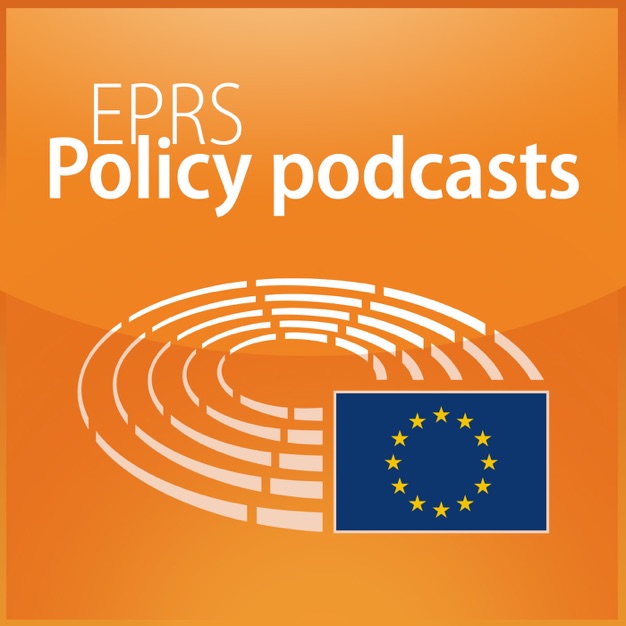 European Parliament - EPRS Policy podcasts
European Parliament - EPRS Policy podcasts
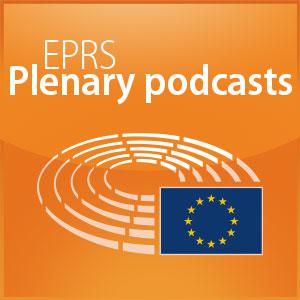 European Parliament - EPRS Plenary podcasts
European Parliament - EPRS Plenary podcasts
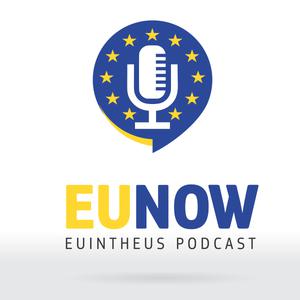 EU Now
EU Now
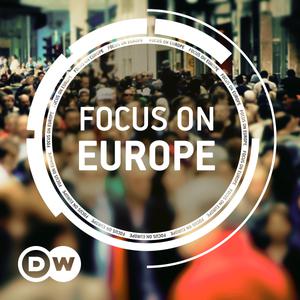 Focus on Europe | Video Podcast | Deutsche Welle
Focus on Europe | Video Podcast | Deutsche Welle
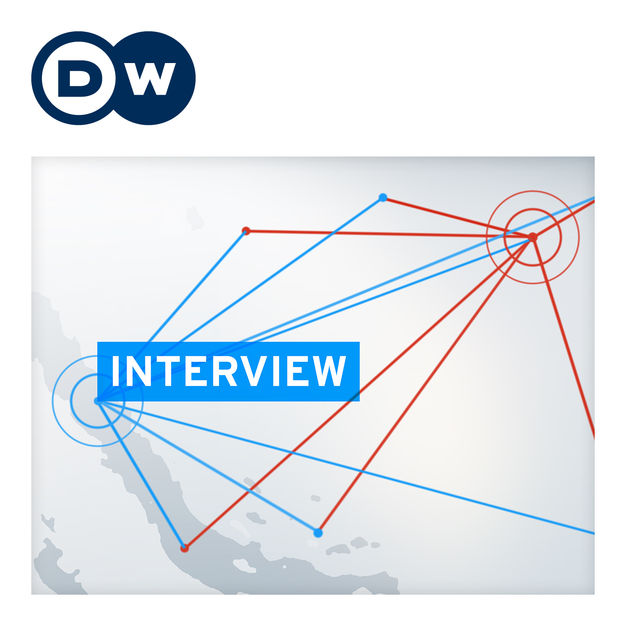 Interview | Video Podcast | Deutsche Welle
Interview | Video Podcast | Deutsche Welle